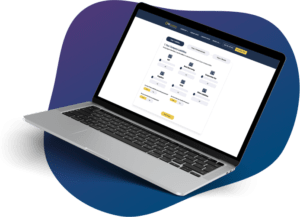Can I claim money from a business that is being liquidated?
If a company owes you money, the last thing you want to hear is that it has gone into liquidation. Liquidation is a formal process to close a company down. It usually happens when a company is insolvent, which means it can no longer pay its debts when they become due. However, as a creditor of the company, you do have rights in the liquidation process.
When an insolvent company enters liquidation, the Insolvency Practitioner who acts as the liquidator will value and sell the company’s assets. They then use the money they raise to repay the company’s creditors in a strict order. Depending on where you are in that order determines how much of the money you are owed you are likely to receive.
As an unsecured creditor, you could receive very little of the outstanding debt. Once the liquidator has distributed all the funds from the sale of assets, the company will be closed down and any remaining debts, including the money the company still owes you, will be written off.
How do you claim money from a liquidation?
How do you claim money from a liquidation?
If you are owed money by a company that enters liquidation, you will be contacted by the liquidator and invited to make a claim for the outstanding debt. The liquidator will also put a public notice in the Gazette to inform all interested parties, including its creditors, that the company is in liquidation.
When filing your claim, you must provide details of the debt amount and what you’re owed the money for. You should also include supporting information, such as invoices and contract details, as evidence of your claim.
How much money do creditors receive on liquidation?
That depends on the type of creditor you are. Broadly speaking, there are five groups of creditors, and the liquidator must pay each group in full before they move on to the next. That means those further down the repayment hierarchy may receive some or even none of the money they are owed.
The repayment hierarchy is as follows:
- Secured creditors with a fixed charge – This group includes banks and other finance providers who have lent the company money and have taken security over one or more assets. They can sell those assets on liquidation to recoup their money.
- Preferential creditors – These creditors include HMRC in respect of PAYE and VAT payments and employees who are entitled to statutory payments, such as wage arrears and unpaid pension contributions.
- Secured creditors with a floating charge – Creditors that hold a floating charge over assets are entitled to a payout from the sale of assets that can be traded in the normal course of business. That includes stock, raw materials and work-in-progress. Unsecured creditors are also entitled to receive a proportion of the sale of floating charge assets.
- Unsecured creditors – Many of a typical company’s creditors fall within this group. It includes trade suppliers, commercial landlords, contractors, customers, credit cards, overdrafts and some payments due to HMRC.
- Connected unsecured creditors – Last to be paid are unsecured creditors with some connection to the business. An example could be a director loan account that’s in credit or loans from friends and family members.
Once the liquidator has distributed all the funds among the creditors, they will remove the company from the official register and write off any outstanding debts. Unfortunately, it’s often the unsecured creditors who are left out of pocket.
Can I claim an outstanding debt after a company has been liquidated?
Can I claim an outstanding debt after a company has been liquidated?
At the end of the liquidation process, the liquidator will investigate the conduct of the directors during and leading up to the company’s insolvency to determine whether they engaged in any wrongful or fraudulent trading. If they find they have, the liquidators could take court action to make the directors personally responsible for some or all of the company’s debts. That will lead to a greater return for the creditors.
It’s also not unusual for company directors to sign a personal guarantee for company borrowing. As a creditor, you can take action to enforce that guarantee and claim the money you are owed from the director personally. They may have also secured business borrowing with a personal asset, in which case, that asset will be at risk.
We can help
We can help
If you’re owed money by a company in liquidation, Scotland Liquidators can help. As liquidation specialists, we provide reliable advice and practical assistance throughout the claims process. Get in touch to arrange your free, same-day consultation with one of our team.



